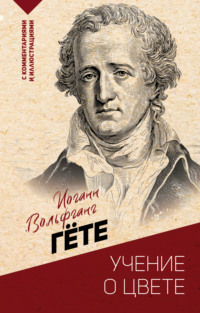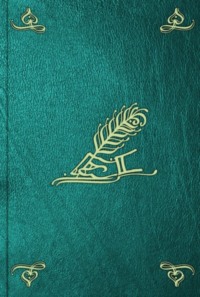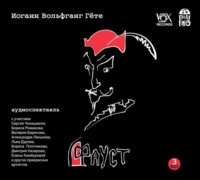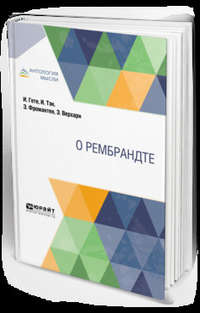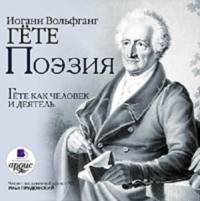Iphigenia in Tauris
 полная версия
полная версияIphigenia in Tauris
Настройки чтения
Размер шрифта
Высота строк
Поля
SCENE II
IPHIGENIA. PYLADESIPHIGENIAWhence art thou? Stranger, speak! To me thy bearingStamps thee of Grecian, not of Scythian race.(She unbinds his chains.)The freedom that I give is dangerous:The gods avert the doom that threatens you!PYLADESDelicious music! dearly welcome tonesOf our own language in a foreign land!With joy my captive eye once more beholdsThe azure mountains of my native coast.Oh, let this joy that I too am a GreekConvince thee, priestess! How I need thine aid,A moment I forget, my spirit wraptIn contemplation of so fair a vision.If fate's dread mandate doth not seal thy lips.From which of our illustrious races, say,Dost thou thy godlike origin derive?IPHIGENIAA priestess, by the Goddess' self ordain'dAnd consecrated too, doth speak with thee.Let that suffice: but tell me, who art thou,And what unbless'd o'erruling destinyHath hither led thee with thy friend?PYLADESThe woe,Whose hateful presence ever dogs our steps,I can with ease relate. Oh, would that thouCouldst with like ease, divine one, shed on usOne ray of cheering hope! We are from Crete,Adrastus' sons, and I, the youngest born,Named Cephalus; my eldest brother, he,Laodamus. Between us two a youthOf savage temper grew, who oft disturb'dThe joy and concord of our youthful sports.Long as our father led his powers at Troy,Passive our mother's mandate we obey'd;But when, enrich'd with booty, he return'd,And shortly after died, a contest fierceFor the succession and their father's wealth,Parted the brothers. I the eldest joined;He slew the second; and the Furies henceFor kindred murder dog his restless steps.But to this savage shore the Delphian godHath sent us, cheer'd by hope, commanding usWithin his sister's temple to awaitThe blessed hand of aid. We have been ta'en,Brought hither, and now stand for sacrifice.My tale is told.IPHIGENIATell me, is Troy o'erthrown?Assure me of its fall.PYLADESIt lies in ruins.But oh, ensure deliverance to us!Hasten, I pray, the promis'd aid of heav'n.Pity my brother, say a kindly word;But I implore thee, spare him when thou speakest.Too easily his inner mind is tornBy joy, or grief, or cruel memory.A feverish madness oft doth seize on him,Yielding his spirit, beautiful and free,A prey to furies.IPHIGENIAGreat as is thy woe,Forget it, I conjure thee, for a while,Till I am satisfied.PYLADESThe stately town,Which ten long years withstood the Grecian host,Now lies in ruins, ne'er to rise again;Yet many a hero's grave will oft recallOur sad remembrance to that barbarous shore;There lies Achilles and his noble friend.IPHIGENIAAnd are ye, godlike forms, reduc'd to dust!PYLADESNor Palamede, nor Ajax, ere againThe daylight of their native land behold.IPHIGENIAHe speaks not of my father, doth not nameHim with the fallen. He may yet survive!I may behold him! still hope on, my heart!PYLADESYet happy are the thousands who receiv'dTheir bitter death-blow from a hostile hand!For terror wild, and end most tragical,Some hostile, angry, deity prepar'd,Instead of triumph, for the home-returning.Do human voices never reach this shore?Far as their sound extends, they bear the fameOf deeds unparallel'd. And is the woeWhich fills Mycene's halls with ceaseless sighsTo thee a secret still? – And know'st thou notThat Clytemnestra, with Ægisthus' aid,Her royal consort artfully ensnar'd,And murder'd on the day of his return? —The monarch's house thou honourest! I perceiveThy heaving bosom vainly doth contendWith tidings fraught with such unlook'd-for woeArt thou the daughter of a friend? or bornWithin the circuit of Mycene's walls?Do not conceal it, nor avenge on meThat here the horrid crime I first announc'd.IPHIGENIAProceed, and tell me how the deed was done.PYLADESThe day of his return, as from the bathArose the monarch, tranquil and refresh'd.His robe demanding from his consort's hand,A tangl'd garment, complicate with folds.She o'er his shoulders flung and noble head;And when, as from a net, he vainly stroveTo extricate himself, the traitor, baseÆgisthus, smote him, and envelop'd thusGreat Agamemnon sought the shades below.IPHIGENIAAnd what reward receiv'd the base accomplice?PYLADESA queen and kingdom he possess'd already.IPHIGENIABase passion prompted, then, the deed of shame?PYLADESAnd feelings, cherish'd long, of deep revenge.IPHIGENIAHow had the monarch injured Clytemnestra?PYLADESBy such a dreadful deed, that if on earthAught could exculpate murder, it were this.To Aulis he allur'd her, when the fleetWith unpropitious winds the goddess stay'd;And there, a victim at Diana's shrine,The monarch, for the welfare of the Greeks,Her eldest daughter doom'd. And this, 'tis said,Planted such deep abhorrence in her heart,That to Ægisthus she resign'd herself,And round her husband flung the web of death.IPHIGENIA (veiling herself)It is enough! Thou wilt again behold me.PYLADES, aloneThe fortune of this royal house, it seems,Doth move her deeply. Whosoe'er she be,She must herself have known the monarch well; —For our good fortune, from a noble house,She hath been sold to bondage. Peace, my heart!And let us steer our course with prudent zealToward the star of hope which gleams upon us.ACT THE THIRD
SCENE I
IPHIGENIA. ORESTESIPHIGENIAUnhappy man, I only loose thy bondsIn token of a still severer doom.The freedom which the sanctuary imparts,Like the last life-gleam o'er the dying face,But heralds death. I cannot, dare not sayYour doom is hopeless; for, with murd'rous hand,Could I inflict the fatal blow myself?And while I here am priestess of Diana,None, be he who he may, dare touch your heads.But the incensed king, should I refuseCompliance with the rites himself enjoin'd,Will choose another virgin from my trainAs my successor. Then, alas! with nought,Save ardent wishes, can I succour you,Much honour'd countryman! The humblest slave,Who had but near'd our sacred household hearth,Is dearly welcome in a foreign land;How with proportion'd joy and blessing, then,Shall I receive the man who doth recallThe image of the heroes, whom I learn'dTo honour from my parents, and who cheersMy inmost heart with flatt'ring gleams of hope!ORESTESDoes prudent forethought prompt thee to concealThy name and race? or may I hope to knowWho, like a heavenly vision, meets me thus?IPHIGENIAYes, thou shalt know me. Now conclude the taleOf which thy brother only told me half:Relate their end, who coming home from Troy,On their own threshold met a doom severeAnd most unlook'd for. I, though but a childWhen first conducted hither, well recallThe timid glance of wonder which I castOn those heroic forms. When they went forth,it seem'd as though Olympus from her wombHad cast the heroes of a by-gone world,To frighten Ilion; and, above them all,Great Agamemnon tower'd pre-eminent!Oh tell me! Fell the hero in his home,Though Clytemnestra's and Ægisthus' wiles?ORESTESHe fell!IPHIGENIAUnblest Mycene! Thus the sonsOf Tantalus, with barbarous hands, have sownCurse upon curse; and, as the shaken weedScatters around a thousand poison-seeds,So they assassins ceaseless generate,Their children's children ruthless to destroy. —Now tell the remnant of thy brother's tale,Which horror darkly hid from me before.How did the last descendant of the race, —The gentle child, to whom the Gods assign'dThe office of avenger, – how did heEscape that day of blood? Did equal fateAround Orestes throw Avernus' net?Say, was he saved? and is he still alive?And lives Electra, too?ORESTESThey both survive.IPHIGENIAGolden Apollo, lend thy choicest beams!Lay them an offering at the throne of Jove!For I am poor and dumb.ORESTESIf social bondsOr ties more close connect thee with this house,As this thy joy evinces, rein thy heart;For insupportable the sudden plungeFrom happiness to sorrow's gloomy depth.As yet thou only know'st the hero's death.IPHIGENIAAnd is not this intelligence enough?ORESTESHalf of the horror yet remains untold.IPHIGENIAElectra and Orestes both survive,What have I then to fear?ORESTESAnd fear'st thou noughtFor Clytemnestra?IPHIGENIAHer, nor hope nor fearHave power to save.ORESTESShe to the land of hopeHath bid farewell.IPHIGENIADid her repentant handShed her own blood?ORESTESNot so; yet her own bloodInflicted death.IPHIGENIASpeak less ambiguously.Uncertainty around my anxious headHer dusky, thousand-folded, pinion waves.ORESTESHave then the powers above selected meTo be the herald of a dreadful deed,Which, in the drear and soundless realms of night,I fain would hide for ever? 'Gainst my willThy gentle voice constrains me; it demands,And shall receive, a tale of direst woe.Electra, on the day when fell her sire,Her brother from impending doom conceal'd;Him Strophius, his father's relative,With kindest care receiv'd, and rear'd the childWith his own son, named Pylades, who soonAround the stranger twin'd the bonds of love.And as they grew, within their inmost soulsThere sprang the burning longing to revengeThe monarch's death. Unlookd for, and disguis'd,They reach Mycene, feigning to have broughtThe mournful tidings of Orestes' death,Together with his ashes. Them the queenGladly receives. Within the house they enter;Orestes to Electra shows himself:She fans the fires of vengeance into flame,Which in the sacred presence of a motherHad burn'd more dimly. Silently she leadsHer brother to the spot where fell their sire;Where lurid blood-marks, on the oft-wash'd floor,With pallid streaks, anticipate revenge.With fiery eloquence she pictures forthEach circumstance of that atrocious deed, —Her own oppress'd and miserable life,The prosperous traitor's insolent demeanour,The perils threat'ning Agamemnon's raceFrom her who had become their stepmother;Then in his hand the ancient dagger thrusts,Which often in the house of TantalusWith savage fury rag'd, – and by her sonIs Clytemnestra slain.IPHIGENIAImmortal powers!Whose pure and blest existence glides away'Mid ever shifting clouds, me have ye keptSo many years secluded from the world,Retain'd me near yourselves, consign'd to meThe childlike task to feed the sacred fire,And taught my spirit, like the hallow'd flame,With never-clouded brightness to aspireTo your pure mansions, – but at length to feelWith keener woe the misery of my house?Oh tell me of the poor unfortunate!Speak of Orestes!ORESTESWould that he were dead!Forth from his mother's blood her ghost arose,And to the ancient daughters of the nightCries, – "Let him not escape, – the matricide!Pursue the victim, dedicate to you!"They hear, and glare around with hollow eyes,Like greedy eagles. In their murky densThey stir themselves, and from the corners creepTheir comrades, dire Remorse and pallid Fear;Before them fumes a mist of Acheron;Perplexingly around the murderer's browThe eternal contemplation of the pastRolls in its cloudy circles. Once againThe grisly band, commissioned to destroy,Pollute earth's beautiful and heaven-sown fields,From which an ancient curse had banish'd them.Their rapid feet the fugitive pursue;They only pause to start a wilder fear.IPHIGENIAUnhappy one; thy lot resembles his,Thou feel'st what he, poor fugitive, must suffer.ORESTESWhat say'st thou? why presume my fate like his?IPHIGENIAA brother's murder weighs upon thy soul;Thy younger brother told the mournful tale.ORESTESI cannot suffer that thy noble soulShould be deceiv'd by error. Rich in guile,And practis'd in deceit, a stranger mayA web of falsehood cunningly deviseTo snare a stranger; – between us be truth.I am Orestes! and this guilty headIs stooping to the tomb, and covets death;It will be welcome now in any shape.Whoe'er thou art, for thee and for my friendI wish deliverance; – I desire it not.Thou seem'st to linger here against thy will;Contrive some means of flight, and leave me here:My lifeless corpse hurl'd headlong from the rock,My blood shall mingle with the dashing waves,And bring a curse upon this barbarous shore!Return together home to lovely Greece,With joy a new existence to commence.[ORESTES retires.IPHIGENIAAt length Fulfilment, fairest child of Jove,Thou dost descend upon me from on high!How vast thine image! scarce my straining eyeCan reach thy hands, which, fill'd with golden fruitAnd wreaths of blessing, from Olympus' heightShower treasures down. As by his bounteous giftsWe recognize the monarch (for what seemsTo thousands opulence is nought to him),So you, ye heavenly Powers, are also knownBy bounty long withheld, and wisely plann'd.Ye only know what things are good for us;Ye view the future's wide-extended realm;While from our eye a dim or starry veilThe prospect shrouds. Calmly ye hear our prayers,When we like children sue for greater speed.Not immature ye pluck heaven's golden fruit;And woe to him, who with impatient hand,His date of joy forestalling, gathers death.Let not this long-awaited happiness,Which yet my heart hath scarcely realiz'd,Like to the shadow of departed friends,Glide vainly by with triple sorrow fraught!ORESTES, returningDost thou for Pylades and for thyselfImplore the gods, blend not my name with yours;Thou wilt not save the wretch whom thou wouldst join,But wilt participate his curse and woe.IPHIGENIAMy destiny is firmly bound to thine.ORESTESNo, say not so; alone and unattendedLet me descend to Hades. Though thou shouldstIn thine own veil enwrap the guilty one.Thou couldst not shroud him from his wakeful foes;And e'en thy sacred presence, heavenly maid,Drives them aside, but scares them not away.With brazen impious feet they dare not treadWithin the precincts of this sacred grove:Yet in the distance, ever and anon,I hear their horrid laughter, like the howlOf famish'd wolves, beneath the tree whereinThe traveller hides. Without, encamp'd they lie,And should I quit this consecrated grove,Shaking their serpent locks, they would arise,And, raising clouds of dust on every side,Ceaseless pursue their miserable prey.IPHIGENIAOrestes, canst thou hear a friendly word?ORESTESReserve it for one favour'd by the gods.IPHIGENIATo thee they give anew the light of hope.ORESTESThrough clouds and smoke I see the feeble gleamOf the death-stream which lights me down to hell.IPHIGENIAHast thou one sister only, thy Electra?ORESTESI knew but one: yet her kind destiny,Which seem'd to us so terrible, betimesRemoved an elder sister from the woeThat dogs the race of Pelops. Cease, oh ceaseThy questions, maiden, nor thus league thyselfWith the Eumenides, who blow away,With fiendish joy, the ashes from my soul,Lest the last spark of horror's fiery brandShould be extinguish'd there. Must then the fire,Deliberately kindl'd and suppliedWith hellish sulphur, never cease to searMy tortur'd bosom?IPHIGENIAIn the flame I throwSweet incense. Let the gentle breath of love,Low murmuring, cool thy bosom's fiery glow.Orestes, fondly lov'd, – canst thou not hear me?Hath the terrific Furies' grisly bandCompletely dried the life-blood in thy veins?Creeps there, as from the Gorgon's direful head,A petrifying charm through all thy limbs?If hollow voices, from a mother's blood,Call thee to hell, may not a sister's wordWith benediction pure ascend to heaven,And summon thence some gracious power to aid thee?ORESTESShe calls! she calls! – Thou too desir'st my death?Is there a fury shrouded in thy form?Who art thou, that thy voice thus horriblyCan harrow up my bosom's inmost depths?IPHIGENIAThine inmost heart reveals it. I am she,Iphigenia, – look on me, Orestes!ORESTESThou!IPHIGENIAMy own brother!ORESTESHence, away, begone!Touch not these locks, I counsel thee; from me,As from Creusa's bridal robe, proceedsAn unextinguishable fire. Depart!Like Hercules, an ignominious death,Unworthy wretch, look'd in myself, I'll die.IPHIGENIAThou shalt not perish! Would that I might hearOne quiet word from thee! dispel my doubts,Make sure the bliss I have implor'd so long.A wheel of joy and sorrow in my heartCeaseless revolves. With shy reserve I turnFrom one unknown; but unto thee, my brother,My inmost heart resistlessly impels me.ORESTESIs this Lyæus' temple? Doth the glowOf holy rage unbridl'd thus possessThe sacred priestess?IPHIGENIAHear me, oh, look up!See how my heart, which hath been clos'd so long,Doth open to the bliss of seeing thee,The dearest treasure that the world contains, —Of falling on thy neck, and folding theeWithin my longing arms, which have till nowMet the embraces of the empty wind.Do not repulse me, – the eternal spring,Whose crystal waters from Parnassus flow,Bounds not more gaily on from rock to rock,Down to the golden vale, than from my heartThe waters of affection freely gush,And round me form a circling sea of bliss.Orestes! Oh, my brother!ORESTESLovely nymph!Nor thy caresses, nor thyself I trust;Diana claims attendants more severe,And doth avenge her desecrated fane.Remove thy circling arm! and if thou wiltSafety and love upon a youth bestow,Unto my friend, more worthy than myself,Impart thy gifts; among yon rocks he roves;Go seek him, guide him hence, and heed not me.IPHIGENIABrother, command thyself, and better knowThy new-found sister, nor misconstrue thusHer pure and heav'nly joy. Ye Gods, removeFrom his fix'd eye delusion, lest this hourOf highest bliss should make us trebly wretched!Oh she is here, thine own, thy long-lost sister,Whom great Diana from the altar snatch'd,And safely plac'd here in her sacred fane.A captive thou, prepar'd for sacrifice,And findest here a sister in the priestess.ORESTESAccursed race! Now may the sun beholdYour final doom. Is not Electra here?That she with us may perish, nor her lifeFor heavier doom and deeper woe reserve.'Tis well, – I follow, priestess! FratricideIs an old custom of our ancient house;And you, ye Gods, I thank, that ye resolveChildless to root me hence. Thee let me counselTo view too fondly neither sun nor stars.Come follow to the gloomy realms below!As dragons, gender'd in the sulphur pool,Swallow each other with voracious rage,So our accurs'd race destroys itself.Childless and guiltless come below with me!There's pity in thy look! oh, gaze not so, —'Twas with such looks that Clytemnestra soughtAn entrance to her son Orestes' heart,And yet his uprais'd arm her bosom pierc'd.His mother fell! – Appear, indignant shade!Within the circle step, ye fiends of hell,Be present at the welcome spectacle,The last, most horrible, that ye prepare!Nor hate, nor vengeance, whets the poignard now,A sister is constrain'd to deal the blow.Weep not! Thy guiltless soul is free from crime.From earliest infancy I nought have lov'd,As thee I could have lov'd, my sister. Come,The weapon raise, spare not, this bosom rend,And make an outlet for its boiling streams!(He sinks exhausted.)IPHIGENIAAlone I cannot bear this bliss and woe.Where art thou, Pylades? Thine aid I need.(Iphigenia retires.)SCENE II
ORESTESRecovering from his swoon and standing upGive yet another! reach from Lethe's streamThe last reviving draught of cool refreshment!Soon shall its waters in my bosom stillLife's fitful fever; and my spirit thenAdown oblivion's stream shall glide to you,Ye spirits, shrouded in eternal mist.With tranquil pleasure in your deep reposeA weary son of earth may lave his soul! —What whisp'ring sounds pervade the dreary grove?What hollow murmurs haunt its twilight gloom? —They gather round to view the stranger guest!Who are yon troop in high communion met,Like an assembl'd family of princes?They mingle peacefully, of every age,And either sex, yet are their godlike formsCast in a kindred mould. 'Tis they, 'tis they,The fathers of my race! With Atreus,In friendly converse glides Thyestes' shade,And children playfully around them sport.Is there no enmity among you now?And is revenge extinguish'd with the sun?I then am welcome, and may hope to joinYour solemn company. My fathers, hail!Orestes, last descendant of your race,Salutes you. What ye sow'd, that hath he reap'dLaden with curses he descends to you.But burdens here are lighter far to bear.Receive him, oh, receive him in your circle!Thee, Atreus, I revere, and thee, Thyestes:Here all are free from enmity and hate. —Show me my father, whom I only onceIn life beheld. – Art thou my father, thou,My mother leading thus familiarly?Dares Clytemnestra reach her hand to thee;Then may Orestes also draw near her,And say, behold thy son! – My ancestors,Behold your son, and bid him welcome here,Among the sons of ancient Tantalus,A kind salute on earth was murder's watchword,And all their joys commence beyond the grave.Ye welcome me! Ye bid me join your circle!Oh, lead me to my honour'd ancestor!Where is the aged hero? that I mayBehold the dear, the venerable head,Of him, who with the gods in council sat.You seem to shudder and to turn away?What may this mean? Suffers the godlike man?Alas! the mighty gods, with ruthless hate,To his heroic breast, with brazen chains,Have cruel pangs indissolubly bound.SCENE III
ORESTES. IPHIGENIA. PYLADESORESTESHow! are ye come already? Sister, welcome.Electra still is missing: some kind godWith gentle arrow send her quickly hither.Thee, my poor friend, I must compassionate!Come with me, come to Pluto's gloomy throne.There to salute our hosts like stranger guests.IPHIGENIACelestial pair, who from the realms aboveBy night and day shed down the beauteous lightTo cheer mankind, but who may not illumeDeparted spirits, save a mortal pair!A brother's and a sister's anguish pity!For thou, Diana, lov'st thy gentle brotherBeyond what earth and heaven can offer theeAnd dost, with quiet yearning, ever turnThy virgin face to his eternal light.Let not my only brother, found so late,Rave in the darkness of insanity!And is thy will, when thou didst here conceal me,At length fulfill'd, – would'st thou to me through him,To him through me, thy gracious aid extend, —Oh, free him from the fetters of this curse,Lest vainly pass the precious hours of safety.PYLADESDost thou not know us, and this sacred grove,And this blest light, which shines not on the dead?Dost thou not feel thy sister and thy friend,Who hold thee living in their firm embrace?Grasp us! we are not shadows. Mark my words!Collect thyself, – each moment now is precious,And our return hangs on a slender thread,Which, as it seems, some gracious fate doth spin.ORESTES to IPHIGENIAMy sister, let me for the first time taste,With open heart, pure joy within thine arms!Ye gods, who charge the heavy clouds with dread,And sternly gracious send the long-sought rainWith thunder and the rush of mighty winds,A horrid deluge on the trembling earth;Yet dissipate at length man's dread suspense,Exchanging timid wonder's anxious gazeFor grateful looks and joyous songs of praise,When in each sparkling drop which gems the leaves,Apollo, thousand-fold, reflects his beam,And Iris colours with a magic handThe dusky texture of the parting clouds;Oh, let me also in my sister's arms,And on the bosom of my friend, enjoyWith grateful thanks the bliss ye now bestowMy heart assures me that your curses cease.The dread Eumenides at length retire,The brazen gates of Tartarus I hearBehind them closing with a thund'ring clang.A quick'ning odour from the earth ascends,Inviting me to chase, upon its plains,The joys of life and deeds of high emprise.PYLADESLose not the moments which are limited!The favouring gale, which swells our parting sail,Must to Olympus waft our perfect joy.Quick counsel and resolve the time demands.ACT THE FOURTH
SCENE I
IPHIGENIAWhen the Powers on high decreeFor a feeble child of earthDire perplexity and woe,And his spirit doom to passWith tumult wild from joy to grief,And back again from grief to joy,In fearful alternation;They in mercy then provide,In the precincts of his home,Or upon the distant shore,That to him may never failReady help in hours of need,A tranquil, faithful friend.Oh, bless, ye heavenly powers, our Pylades,And every project that his mind may form!In combat his the vigorous arm of youth,And in the counsel his the eye of age.His soul is tranquil; in his inner mindHe guards a sacred, undisturb'd repose,And from its silent depths a rich supplyOf aid and counsel draws for the distress'd.He tore me from my brother, upon whom,With fond amaze, I gaz'd and gaz'd again;I could not realize my happiness,Nor loose him from my arms, and heeded notThe danger's near approach that threatens us.To execute their project of escape,They hasten to the sea, where in a bayTheir comrades in the vessel lie conceal'dAnd wait a signal. Me they have suppliedWith artful answers, should the monarch sendTo urge the sacrifice. Alas! I seeI must consent to follow like a child.I have not learn'd deception, nor the artTo gain with crafty wiles my purposes.Detested falsehood! it doth not relieveThe breast like words of truth: it comforts not,But is a torment in the forger's heart,And, like an arrow which a god directs,Flies back and wounds the archer. Through my heartOne fear doth chase another; perhaps with rage,Again on the unconsecrated shore,The Furies' grisly band my brother seize.Perchance they are surpris'd? Methinks I hearThe tread of armed men. A messengerIs coming from the king, with hasty steps.How throbs my heart, how troubl'd is my soulNow that I see the countenance of one,Whom with a word untrue I must encounter!

